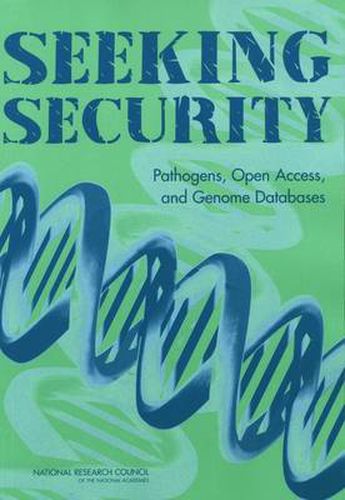Readings Newsletter
Become a Readings Member to make your shopping experience even easier.
Sign in or sign up for free!
You’re not far away from qualifying for FREE standard shipping within Australia
You’ve qualified for FREE standard shipping within Australia
The cart is loading…






Within the last 30 years, the genomes of thousands of organisms, from viruses, to bacteria, to humans, have been sequenced or partially sequenced and deposited in databases freely accessible to scientists around the world. This information is accelerating scientists’ ability to fight disease and make other medical advances, but policymakers must consider the possibility that the information could also be used for destructive purposes in acts of bioterrorism or war. Based in part on views from working biological scientists, the report concludes that current policies that allow scientists and the public unrestricted access to genome data on microbial pathogens should not be changed. Because access improves our ability to fight both bioterrorism and naturally occurring infectious diseases, security against bioterrorism is better served by policies that facilitate, not limit, the free flow of this information.
$9.00 standard shipping within Australia
FREE standard shipping within Australia for orders over $100.00
Express & International shipping calculated at checkout
Within the last 30 years, the genomes of thousands of organisms, from viruses, to bacteria, to humans, have been sequenced or partially sequenced and deposited in databases freely accessible to scientists around the world. This information is accelerating scientists’ ability to fight disease and make other medical advances, but policymakers must consider the possibility that the information could also be used for destructive purposes in acts of bioterrorism or war. Based in part on views from working biological scientists, the report concludes that current policies that allow scientists and the public unrestricted access to genome data on microbial pathogens should not be changed. Because access improves our ability to fight both bioterrorism and naturally occurring infectious diseases, security against bioterrorism is better served by policies that facilitate, not limit, the free flow of this information.